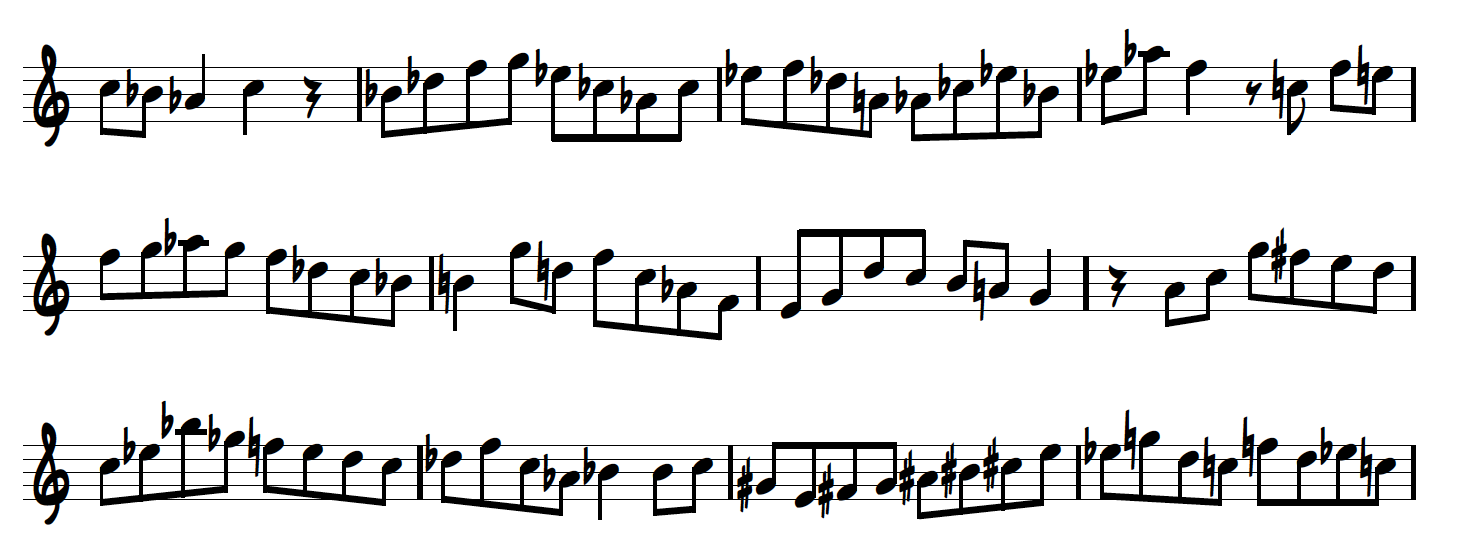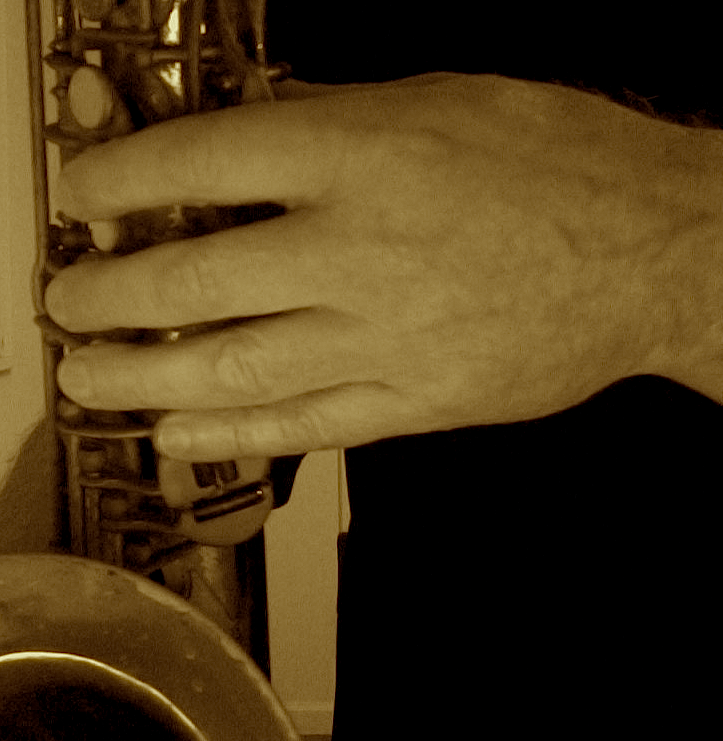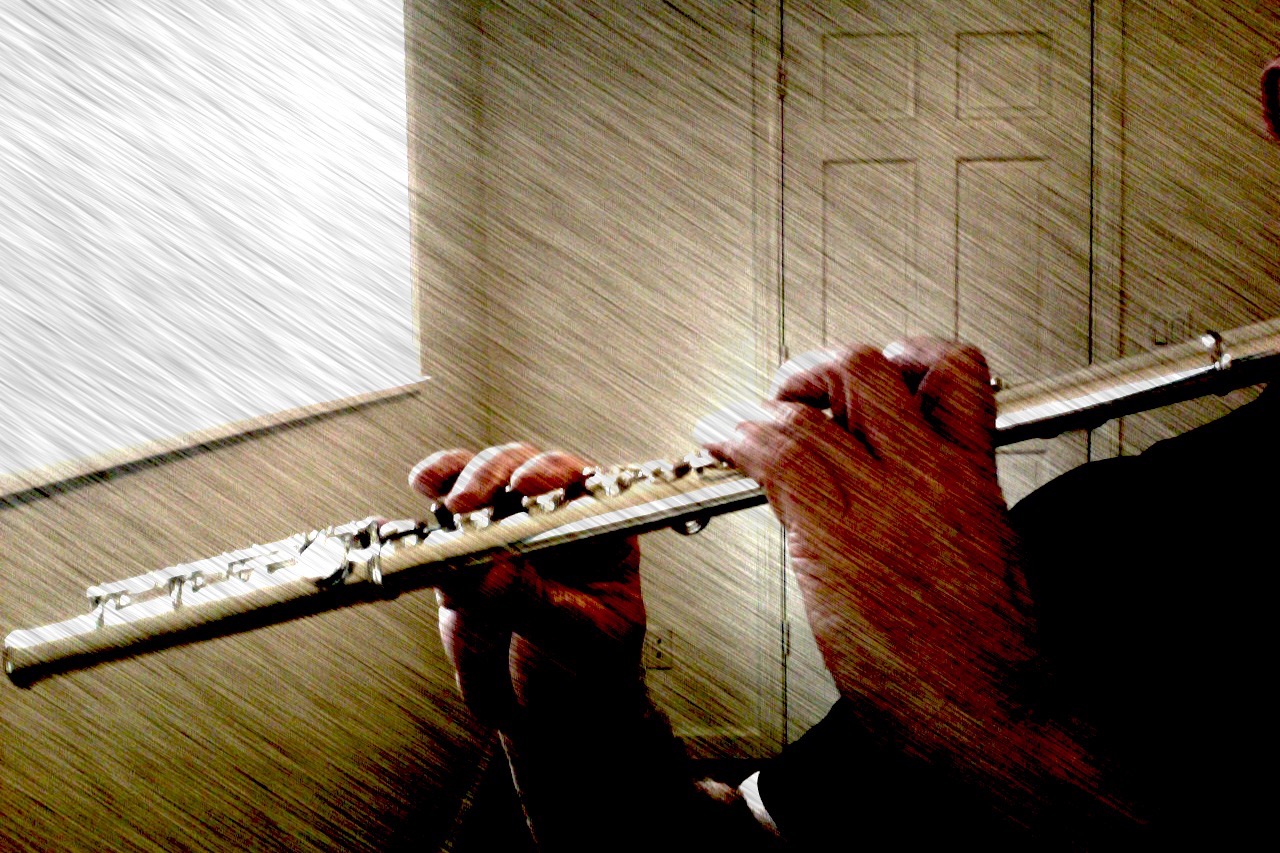“Your biggest mistake wasn’t in playing the wrong note. Your biggest mistake was in what you did after you played the wrong note.” I heard this during a saxophone lesson I took nearly thirty years ago from the great teacher and woodwinds artist, Bill Green. I vividly remember what he told me word for word because it was such a moment of clarity for me.
What made me sound bad wasn’t the clunker note that I played in the etude during my lesson. What made me sound bad was how I sort of fell apart after playing that note.
I was so concerned with producing a “flawless” performance, that after I made my mistake I became at first flustered (thereby making more mistakes), and then I sort of gave up.
I still finished playing the piece, but at one point I just stopped seeing the point in giving it my full intention (after all it was now flawed!) I had effectively lost the music. Disconnected myself from it. Stopped feeling it and started judging myself instead.
At that point in my musical career I had the grand notion that, with enough hard work, I could play flawlessly like the great Bill Green. But what I learned from him instead is that his aim (and the aim of most great performers) is not to play flawlessly. Instead his aim is to stay present with the music.
When you stay present in the act of making music, you indirectly reduce the amount of mistakes you’ll make. When you stay present with the act of making music, you always stay within the realm of personal expression and artistry.
When I told Bill Green that I’d never heard him make a mistake, he just chuckled. Then he replied, “Oh, you’ve heard me make mistakes. You just didn’t notice them.” He said that the important thing is to keep the music going and stay present with your original intention. He went on to tell me an allegorical tale:
Imagine you’re in a dark forest, running for your life to elude an angry bear that is chasing you. You have a good head start on the bear, and if you keep running, you’ll make it to safety before the bear can catch you. But then (because it’s dark) you accidentally run into the low branches of a tree. Bam!
You’re not hurt, but you’re startled. You have to keep running though, so you continue to do so. But now your thoughts are on that tree that gave you a problem, and you keep looking back toward where it was. Then, Bam! You run into another tree. Same thing, you’re startled but not hurt. You keep running, still looking back at those damned low-lying branches that gave you trouble. Then, Bam again! And so on…
I think you get the point: once you’ve made a mistake, let it go. Stay present and keep moving forward toward your intended goal. It works in the forest running from a bear (it gives you better odds of survival, anyhow), and it works in playing music.
When I teach the Alexander Technique to performers who struggle with performance anxiety, I’m struck by one underlying theme: These folks are almost never in the present moment of their performance. They tend to live somewhere between fear of that which is yet to come (their fear of making mistakes), and regret of that which just happened (the mistakes they’ve made thus far).
This keeps them shifting back and forth from past to future, never having a chance to experience the exhilaration of the present moment. (Not exactly something that cultivates and supports an authentic and rich personal expression.) When I can get them back to the present moment, they are often stunned with the beauty and power of their performance.
There is art in all aspects of music making, both in what you intend to play, and in what you don’t intend to play. It comes down to how you react to what you do. To make mistakes artfully, you must react in such a way that allows the flow of your art to continue.
So notice how you react the next time you make a mistake while performing:
What happens in your body? Do you tense up? Stop breathing? If you notice that you become tense, see if you can discern a pattern. Do you stiffen your neck? Raise your shoulders? Lock your knees? Ask yourself if any of these patterns of tension might be preventing you from playing your best. If the answer is yes, practice not reacting with these patterns as you play. If you give yourself the chance to pay attention, you might also find that these same patterns of habitual tension rise up a great deal while you’re practicing as well. This is a wonderful opportunity to practice preventing these kinds of reactions. You can take this skill right into your performances.
Where does your attention go? (Does it move backwards or do you easily bring yourself back to the present moment? Do you “give up” on the performance, or stay with your intentions?) It’s important that you learn to let go of regret immediately after you’ve made a mistake. This takes a persistent, clear intention, as well as practice. But if you can learn to react by not reacting (no such thing, really, but I think you get the picture; just stay present and clamly alert) you’ll become a much more consistent, artful and authentic performer.


